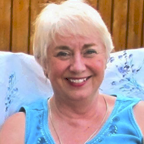Now that the year 2020 is over, we should all breathe a sigh of relief. Most of us are hoping that a new year will bring a new, more positive chapter to our lives and those around us. Educators are looking for relief in a year fraught with change and stress. Parents are looking for an education anchor, something they can rely on for their children, and our students are just looking for hope in a year that has been unmapped and stormy.
Lessons learned from 2020
School is important. We all realized that school was important for children. We have realized its importance in our world not just academically, but economically, emotionally, and physically. Lack of school has pushed all these things to the limit.
Our job infrastructure is weak at some key places. Technology, skills trades, and unskilled labor is appreciated now more than ever. The lack of workers in all these areas has emphasized a weakness in our country. We need to remember that our end goal is a citizenry that measures its success by its contribution to the whole of society. That contribution takes many forms.
Adults and children need stability. The mental health of all of us has been challenged with isolation, change, lack of physical contact and our human need for love. Children have been the most vulnerable, facing an education world that has moved online and in-person, challenging them and the limits of those who care for them.
We all need each other. Online education has been most successful when it is collaborative with someone in charge on both ends involved in the endeavor. Children need oversight, assistance, and motivation from in-person facilitators. Our world is smaller and larger than we thought, its challenges require us all working together to succeed.
For some youth, technology is not an educational option. Whether because of the lack of infrastructure or their own individual needs, online school will never provide the means for some youth to flourish. Special needs youngsters and children without support at home need the physical space and support that schools provide.
Academic achievement is easily lost. We have seen small increases at best; in our most at-risk communities we have seen major losses. We must stay vigilant and focused.
How we can begin anew in 2021
Schools need a major overhaul. It won’t be quick, and it won’t be easy, but we need to look more closely at what our national, state and local communities need to stay economically, physically, and emotionally healthy. Schools serve a need that is greater than simply academics. Our kids need the stability and physical safety of school. They need, not just the academic challenges, but the shelter, reliable schedule, and love that school adults and their peers provide. Our communities now realize the importance of school, and now is the time to work hand-in-hand with them to provide the total support for our communities’ youth.
Focus on allowing our children the opportunity to explore different types of options for their futures. College is not and should not be for everyone. Trades schools are excellent options, but will require our best and brightest as do college or university pathways.
Let’s get reality-focused
We spend a lot of time trying to teach some young people advanced academic skills they will never use. Instead, we should have a real-world focus. Many of our youth need life skills, job skills and financial management classes. These are lessons that should not be taught in a lecture classroom, but with project-based learning, collaborative community experiences, and high expectations.
Schools should be more involved in the needs of the community and its children. Schools have the physical infrastructure to provide food to children and the community. They are an untapped resource as our communities recover and provide for their inhabitants. We are told many are hungry. We can feed them with collaboration and community support.
The road less traveled
For some, these proposals may feel like an overreach. With an open mind and an expanded future focus, however, we can look down the road for individual communities.
As Robert Frost said in The Road Not Taken,
I shall be telling this with a sigh
Somewhere ages and ages hence:
Two roads diverged in a wood, and I—
I took the one less traveled by,
And that has made all the difference.
About the author

Christy Martin recently retired after more than 35 years as an educator K-12 and post-secondary as well as several years as a coordinator of programs for youth aging out of foster care. She writes about what she knows from experiences in education and social services. Christy welcomes comments on her articles. Communicate with her via email at ccsmartin@hotmail.com. She can also be found on Christy Martin | Facebook, Christy S. Martin (@ChristySMartin1) / Twitter, and (4) Christy Martin, Ed.D. | LinkedIn.











